THE TIMES OF HARVEY MILK (1984)
A documentary about the successful career and assassination of San Francisco's first elected gay city supervisor.
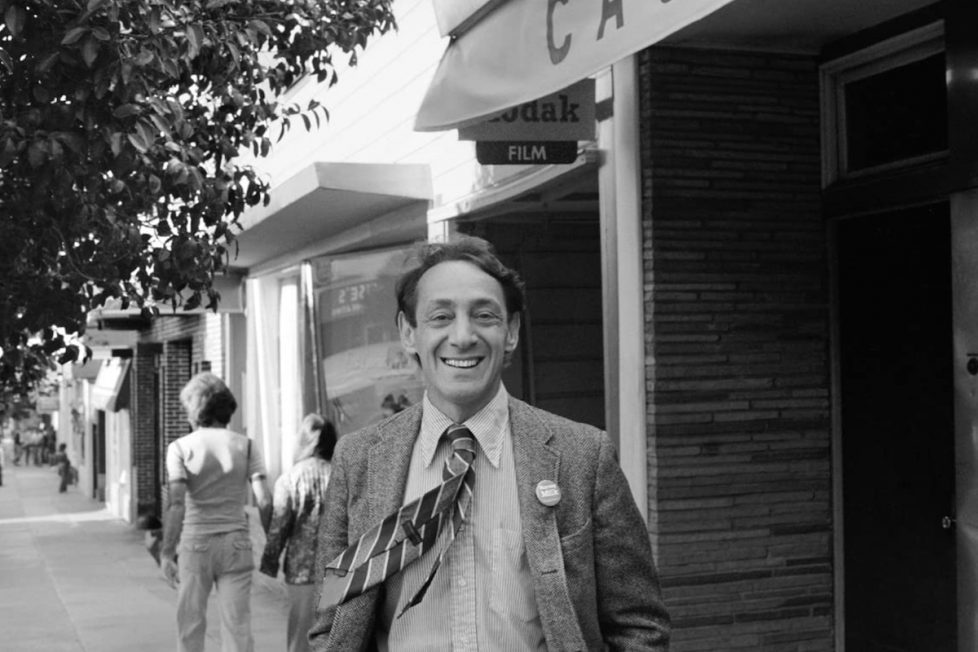
A documentary about the successful career and assassination of San Francisco's first elected gay city supervisor.


On the morning of 27 November 1978, a young San Francisco politician called Dan White climbed through a window at City Hall, where he has until recently held an elected position. He went to the office of George Moscone, the mayor, and shot him dead… and then walked through the building to the office of another colleague, Harvey Milk, and killed him too.
Any assassination of a public figure sends shockwaves through their community, but Milk’s was more than averagely traumatic for San Franciscans and for many beyond the Bay Area. He’d been a supervisor (a term for members of San Francisco’s city council) for less than a year, but he was openly gay, and in the 1970s this was almost unheard of in politics. Rob Epstein’s documentary The Times of Harvey Milk briefly illustrates that with a contemporary clipping from the London Daily Telegraph, its headline declaring “Homosexual Elected.”
Milk had become not only a representative of his constituents in the city’s Castro district, but a symbol of the entire gay community and the gay rights movement. Today, indeed, Milk is far better remembered than Moscone, at least outside of San Francisco. And it’s this public role played by Milk, rather than the inner character of the man himself, that Epstein’s film (which won the 1985 Academy Award for ‘Best Documentary;) explores. It’s no accident it’s entitled just The Times of Harvey Milk, rather than The Life and Times. Indeed, in some ways the film gets inside White more than it does Milk.
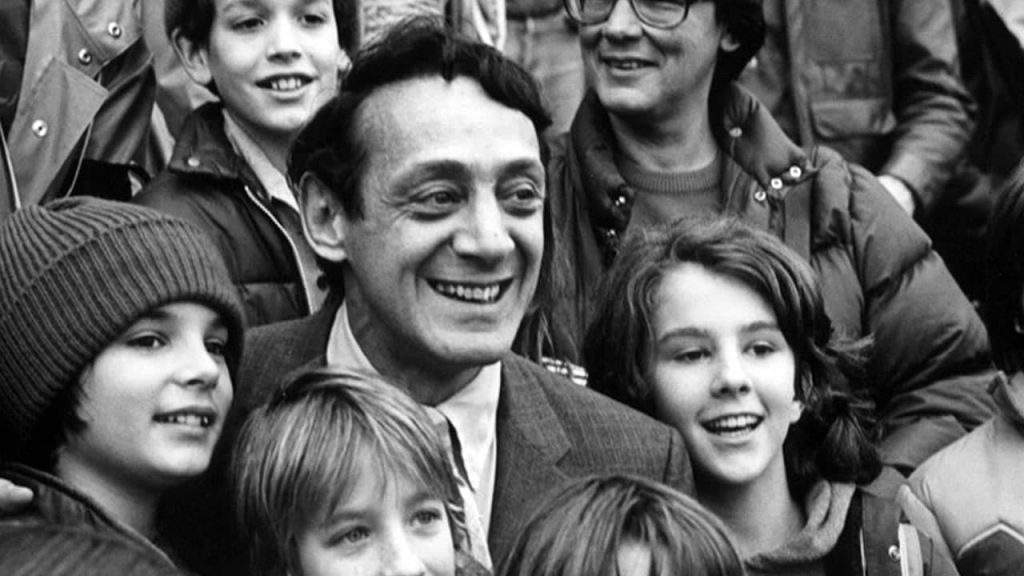
Certainly, Milk’s early life (education, the Navy, a job on Wall Street) is skipped through quickly, so that this well-constructed and fast-moving documentary can concentrate on the climax of his political career in San Francisco, ending in his murder. Epstein and producer Richard Schmiechen actually started making The Times of Harvey Milk before their subject was killed, but you wouldn’t know it. The film begins powerfully with footage of Dianne Feinstein, then-president of the city’s Board of Supervisors and nowadays a senator, announcing the two deaths.
Epstein takes care to set up the Milk-White opposition very early—- they were elected to the Board at the same time, but Milk represented change, while the more conservative White spoke of “old-fashioned values”—and also introduces near the beginning of the film Milk’s own conviction that he might be assassinated.
It’s not, however, a tale of two enemies. White (who may have intended to kill even more people but was nevertheless convicted only of voluntary manslaughter, provoking riots which the documentary covers powerfully, and who committed suicide soon after his release from a short prison sentence) doesn’t appear to have been a stereotypical violent homophobe. The murder of Milk was not simply motivated by rage at his open sexuality.
Rather, White had a welter of personal problems and felt slighted by his fellow politicians, including the straight Moscone as well as Milk, and it’s to Epstein’s credit that his movie makes this clear rather than resorting to an easy, but inaccurate, portrayal of Milk as purely a “gay martyr”.
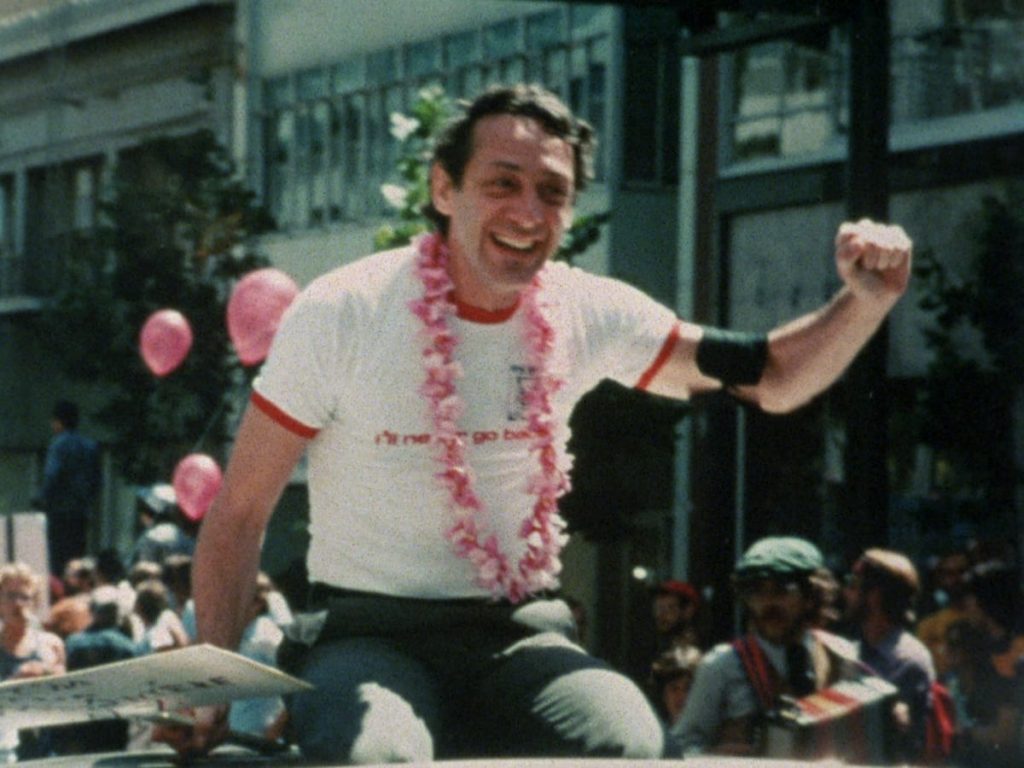
Indeed, although the murders loom over the entire film (and one of the best extras is a panel discussion about White’s trial), they’re far from its sole focus. If anything, it’s a study of Milk’s achievement in becoming the public voice of San Francisco’s large gay community during that optimistic but not unproblematic post-Stonewall, pre-AIDS era, and it doesn’t shy away from setting this in the sometimes complicated political context of the times.
For example, a procedural change to the city’s election rules helped Milk to gain office (previously, the entire city had voted for supervisors, but under the new structure he could be elected by just one district, and the Castro had an exceptionally large gay population). Rather than gloss over this in a few words, Epstein takes the time to explain it, as he also does with the threat of the statewide Proposition 6 in 1978, which would have banned gay men and lesbians from working in California’s public schools (had it not been defeated), and which was mirrored by similar initiatives in other parts of the country.
The message is clear: progressive movements need detailed engagement with the nitty-gritty of actual politics, more than high-flown rhetoric, and Milk delivered this. Not just on gay issues, either; “he was coming from people positions” on all kinds of community questions, as one interviewee observes. He may have been seen as a gay hero, but that didn’t stop him becoming involved with mundane matters of city governance like dealing with dog fouling.
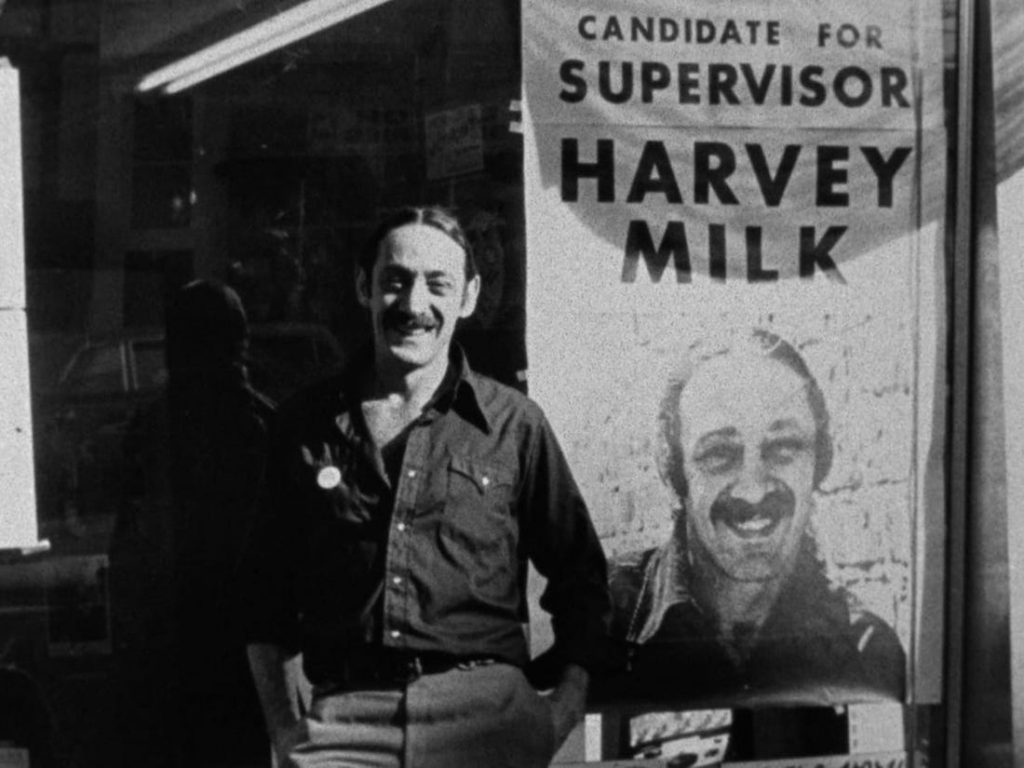
The message is clear: progressive movements need detailed engagement with the nitty-gritty of actual politics, more than high-flown rhetoric, and Milk delivered this. Not just on gay issues, either; “he was coming from people positions” on all kinds of community questions, as one interviewee observes. He may have been seen as a gay hero, but that didn’t stop him becoming involved with mundane matters of city governance like dealing with dog fouling.
There’s a remarkable amount of such insight compressed into the 90-minute running time, with much well-chosen footage from the period, including the huge candlelight demonstration on the day Milk died and then the protests after White’s sentencing. Accompanied at times by an effective Mark Isham score, this material is fascinating in itself—scenes just 40 years ago seem almost like another world—and indeed the whole tenor of the movie often reminds us how much has changed for the gay community in those few decades. Harvey Fierstein’s narration uses phrases like “the gay life”, taking as a given that it’s something separate from the mainstream, in a way that a film wouldn’t today.
This documentary footage is interspersed with interviews, astutely employing just eight people, all of them individuals whose lives intersected with Milk’s, none of them famous. (Epstein’s decision to exclude obvious experts, talking heads and prominent figures may account for the otherwise odd absence from the movie of Randy Shilts, Milk’s biographer and by far the most prominent gay journalist in the US at the time.)
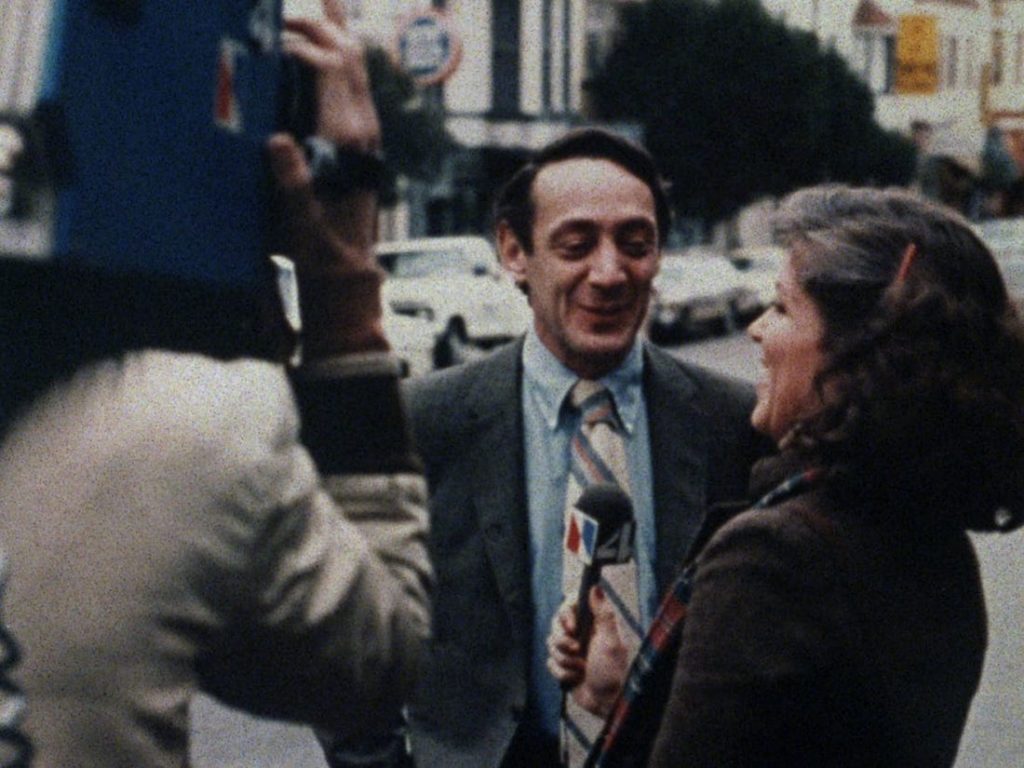
Occasional clunkiness doesn’t detract from the compelling and often highly dramatic effect of The Times of Harvey Milk. For example, Fierstein’s narration has too much the feeling of someone reading from a script, but fortunately there’s not much of it, and then there’s a strange digression into Moscone’s views on capital punishment (he was anti). This is perhaps intended to be ironic given the mild treatment that Moscone’s murderer would receive from the judicial system, but even if that’s so, at the point it appears in the film the relevance isn’t clear.
Still, these are minor points. The Times of Harvey Milk is a valuable and eminently watchable historical document, important not only for the story it tells but also for having been made at the time it was made.
There’s a rawness and a strength of feeling to this film, released just six years after Milk’s death, which is inevitably less present in Gus van Sant’s fine 2008 biopic Milk. Starring Sean Penn in the title role, that later film is covered in the outstanding set of extras which Criterion provides on this disc (and also mentioned is Oliver Stone’s never-fulfilled interest in doing a Milk movie, which would surely have risked falling into the trap that The Times of Harvey Milk always avoids—that of making Milk excessively larger-than-life or tragic).
The most obvious audience for The Times of Harvey Milk may be people who feel a personal connection with the era, the place, or the movement that the movie covers. But it’s worth the time of anyone who’s interested in social history, or in the way that outstanding documentary filmmaking can spring from passionate commitment to a story that was still unfolding while the film was being made. The Times of Harvey Milk doesn’t just depict those times… it was part of them.
USA | 1984 | 88 MINUTES | 1.37:1 | COLOUR | ENGLISH

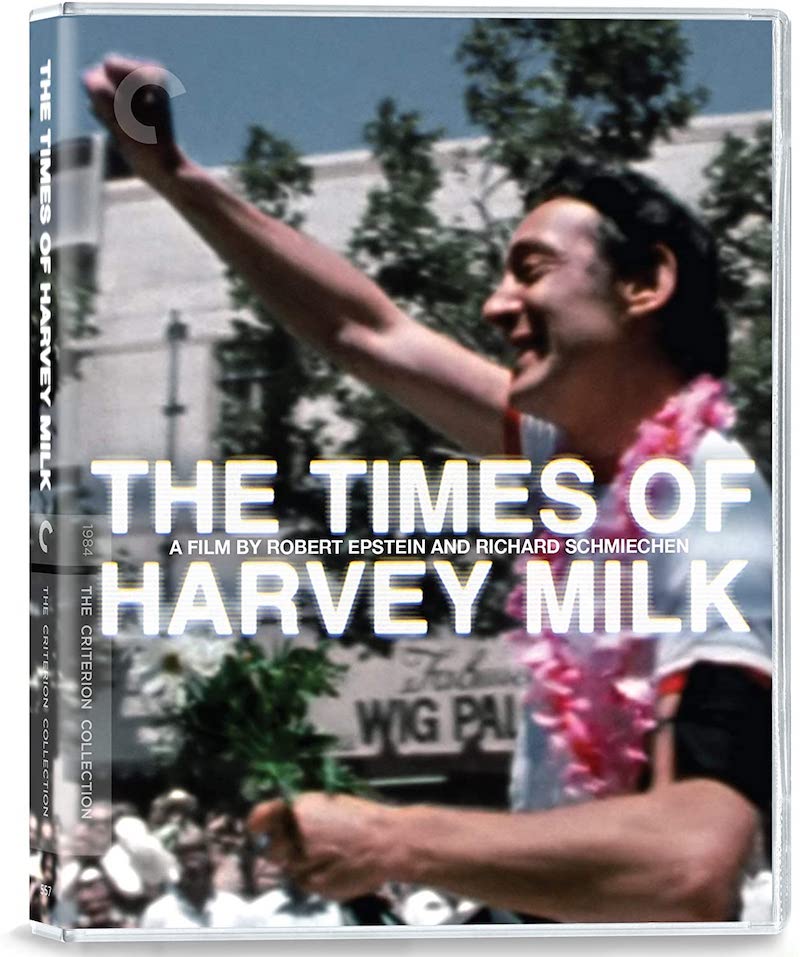
In terms of quality, this reissue is, of course, dependent on the quality of the original footage—much of which was shot for local TV. But it’s largely unimpaired, and the UCLA Film and Television Archive has done a good job with preservation. Sound is outstanding throughout, even on archive material, with only the panel discussion occasionally descending into flakiness (almost certainly an issue with the recording at the time).

director: Rob Epstein.
writers: Rob Epstein, Carter Wilson & Judith Coburn.
starring: Harvey Fierstein (narrator), Anne Kronenberg, Tom Ammiano & Sally Gearheart.
